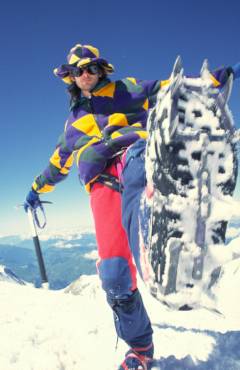
|
| Personal background |
|---|
Based in Leeds, UK. A member of the Accelrys SETI team. We are a mixture of Leeds (UK), Cambridge (UK) and San Diego (USA) based people all working for the same company.
I currently use the SETI Driver manager program to control the command line version for Windows NT SETI@Home for crunching data. This allows me to run it on both processors of a twin processor machine as a low priority process. That way it crunches data 24 hours a day on my Oracle test server without impacting on the performance of Oracle noticeably. I also have a second machine running the same set up on a single processor. This machine is another test machine hosting a web server, so it is also on 24 hours a day.
|
| Thoughts about SETI and SETI@home |
|---|
I'm sure there is life out there somewhere, based on the very small probability of us being the only life bearing planet in the universe. I'm not so sure that there is a reasonable likelihood of us detecting it via intercepting radio transmissions, but you never know if you don't try. Hey, they used to think the world was flat didn't they!
I think if we are serious about trying to detect signals from intelligent life, then we should also be broadcasting something for other life forms to detect from us. Only seems fair we should do our bit of other planet's SETI projects now doesn't it? I thought the idea of including information about mankind and our world on the voyager probe was a cool idea.
I must admit however that my main motivation for crunching large quantities of SETI@Home data is due to the friendly rivalry within our SETI team to see who can crunch the most data!
|
| Your feedback on this profile |
|---|
| Recommend this profile for User of the Day: |
I like this profile |
| Alert administrators to an offensive profile: |
I do not like this profile |
|
|

